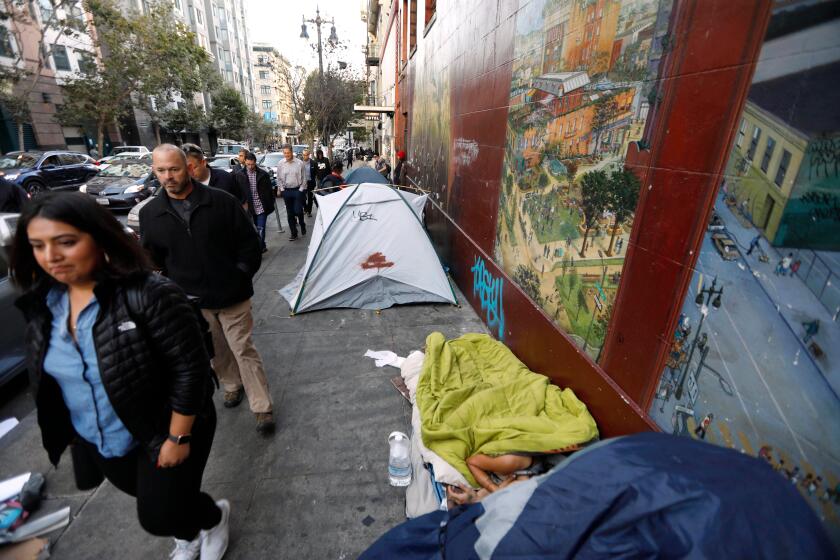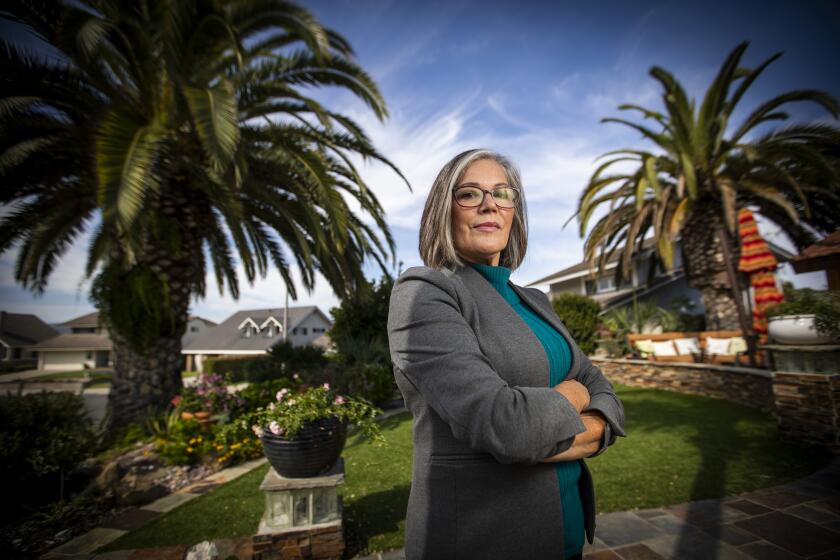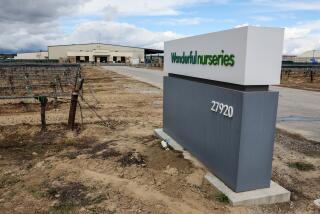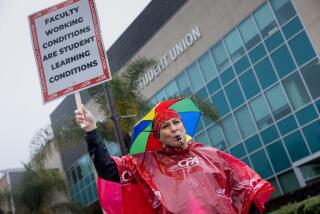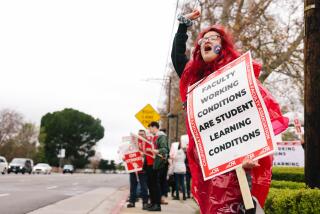UC outsources thousands of jobs to private contractors. Is that a good idea?
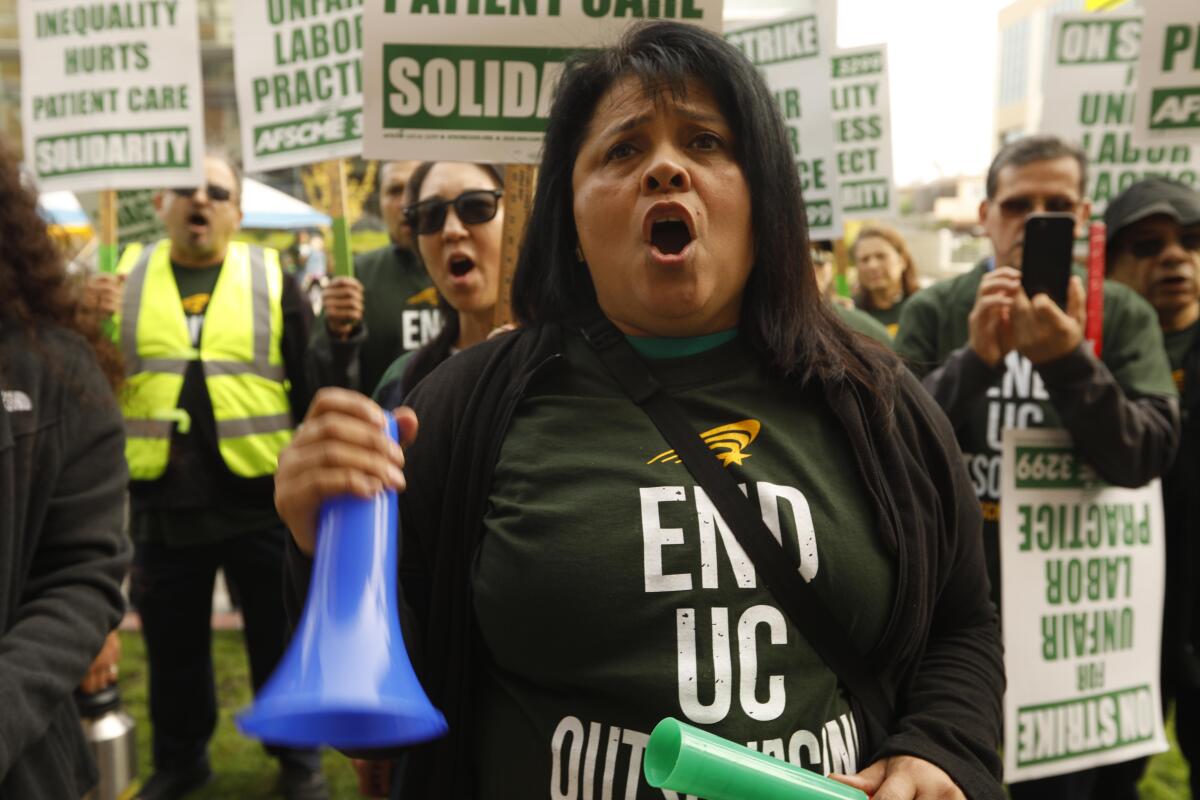
Maria Torres loves her job.
A surgical technologist at UCLA’s Santa Monica medical center, the 54-year-old mother of two makes sure operating rooms are sterile, protecting patients against wayward germs. She assists physicians as they repair hernias, operate on cataracts and fix injured knees. She comforts the fearful. She coaches medical students on how to scrub their hands.
And, after 13 years on the job, Torres makes a decent wage: $29.72 an hour plus benefits. “It’s amazing to work at such a prestigious place,” she says. “When I got hired there, I was so proud.”
So what was Torres doing on a November picket line, swinging a sign reading, “Inequality Hurts Patient Care,” and chanting, “Hey-hey, ho-ho, UC greed has got to go”?
The University of California is at war with its largest union, the 26,000-member Local 3299 of the American Federation of State, County and Municipal Employees (AFSCME). November’s one-day strike, with picket lines at 10 UC campuses and five university hospitals across the state, was the sixth such angry walkout in the three years that the two sides have been fighting over a new contract.
The issue is outsourcing: the sprawling university system’s use of workers from temporary help agencies and staffing firms to fill low- and middle-wage service and healthcare jobs.
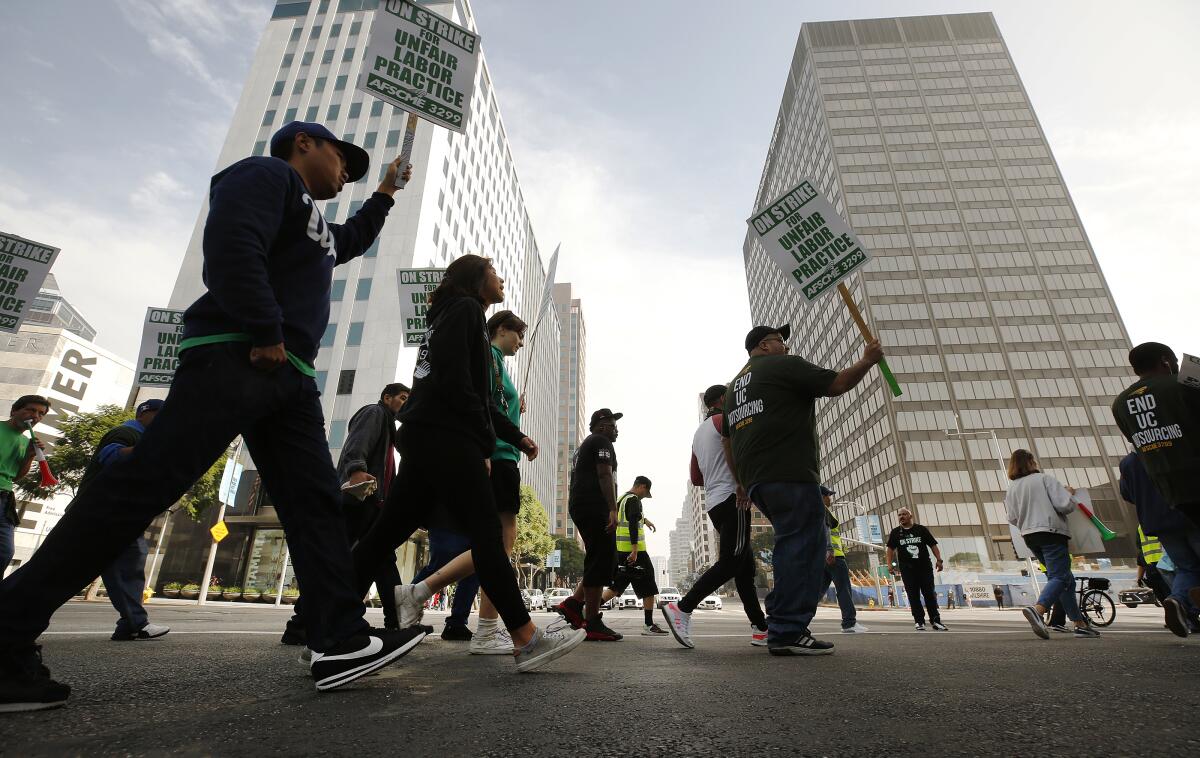
UC, the state’s third-largest employer, spends some $523 million a year on outside contracts for an estimated 10,000 parking attendants, security guards, custodians, cafeteria workers, groundskeepers and patient-care technicians among dozens of occupations normally represented by Local 3299.
“UC has accelerated the practice of replacing middle-class careers with less stable, lower-wage contract jobs,” says Local 3299 President Kathryn Lybarger, who rose through the ranks from a job as a UC Berkeley gardener. “This creates more poverty and less social mobility for thousands of California’s most vulnerable workers.”
To be sure, outsourcing has been common practice in corporate America for decades. Walmart warehouses are filled with temp workers. Contractors account for more than half of Google’s workforce. Amazon relies on independent contractors to deliver goods.
This “fissured workplace,” as some economists call it, is increasingly blamed for the nation’s growing divide between haves and have-nots.
University officials say contractors give them flexibility to meet complex hiring needs. It also saves money at a time when the UC complex, with a $37.2-billion annual budget, is trying to curb tuition hikes and expand the student body. Temp workers have traditionally been paid less than regular employees and lack the costly benefits that union members enjoy.
Wage inequality has risen more in California cities than in the metropolitan areas of any other state, with seven of the nation’s 15 most unequal cities located in the Golden State.
Should a public institution be held to stricter standards than for-profit companies?
Under pressure from elected officials, and from a union-led speaker boycott that caused the Democratic National Committee to yank its scheduled Dec. 19 presidential debate away from UCLA, the UC Board of Regents adopted new outsourcing guidelines last month. They require staffing firms to give workers pay and benefits equivalent to what university employees earn for the same job, a move that will cost UC an additional $108 million a year.
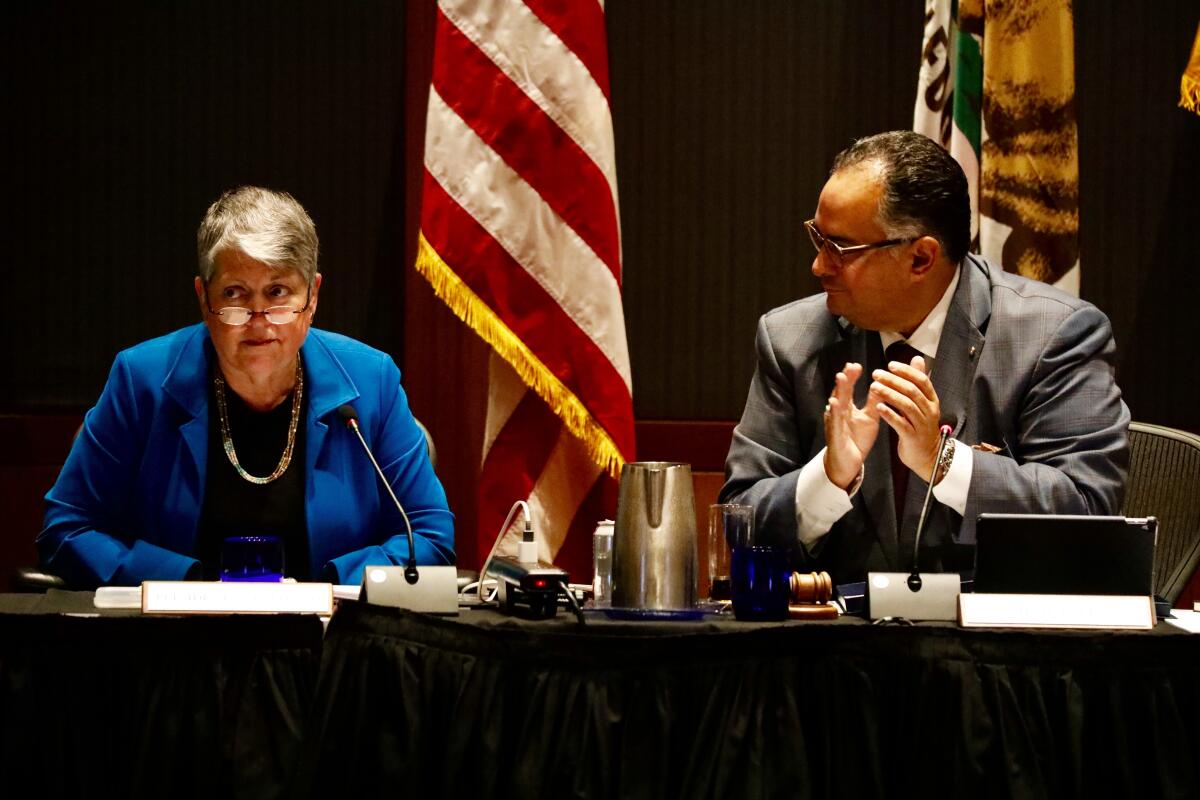
“We recognized that this was an area of some concern for our workers,” UC President Janet Napolitano said. “We are serious about having a contracting-out policy that protects our workers from displacement, that limits the use of outside labor.”
Yet the new five-page policy stops short of strict restraints, saying only that outsourcing should be used “sparingly.” So-called perma-temps who work for the university a year or more are not definitively offered employee status, as the union would like, but may “request to be converted,” with no guarantee.
Napolitano cites the need for “some limited flexibility where using outside or temporary workers is unavoidable.” Examples, she said, would be a sudden need for respiratory therapists following a wildfire, the closing of a lab requiring environmental expertise, or readying dorms for arriving students.
On the picket line, UC workers said contractor hiring far exceeds such circumstances.
“Nobody is safe,” Torres said. “I’m putting my daughter through college. I have a car payment. I have a mortgage. But UC can outsource anybody’s job. They bring in people who are paid less. A lot of us are afraid our jobs are in jeopardy.”
In her surgery center, she said, workers who sterilize instruments are mostly temps. “People leave their job for whatever reason, and instead of hiring a permanent employee, they hire a contractor. They bring them on for six or nine months, and then they extend them.”
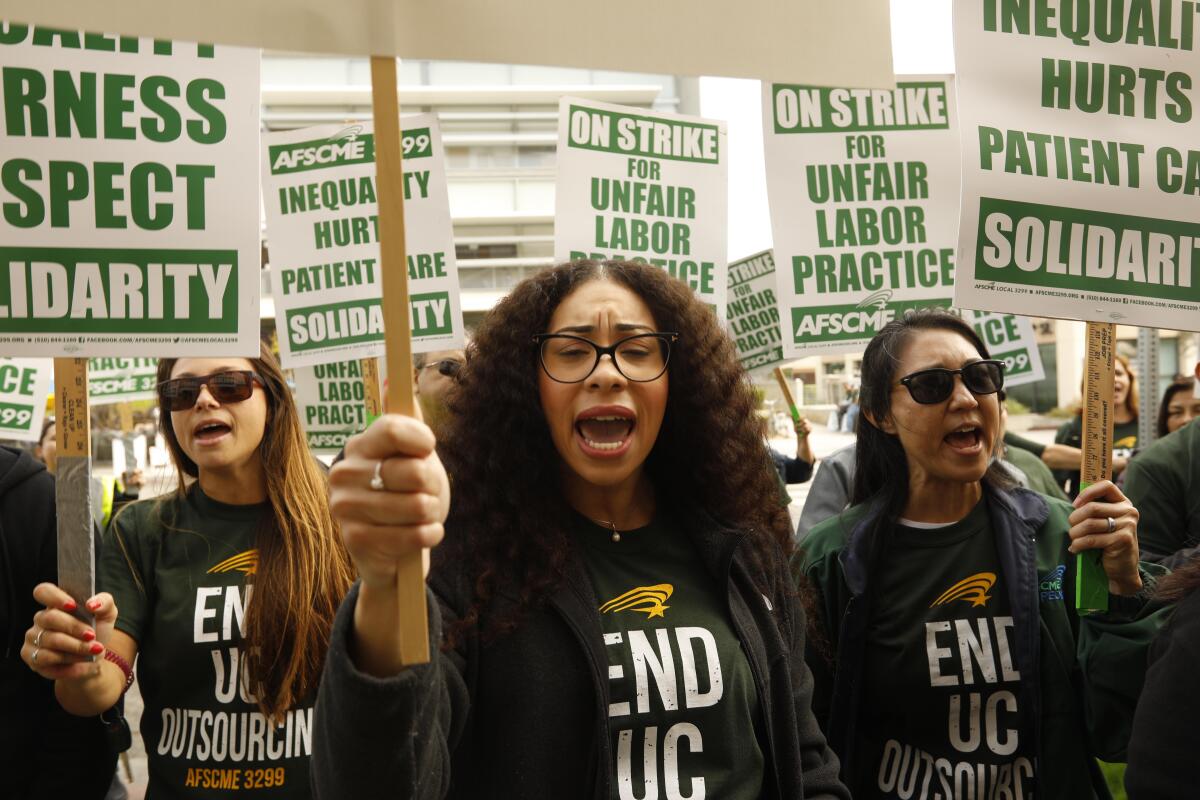
Amanda Crawford, a 26-year-old phlebotomist and mother of a 5-year-old, was also on the picket line, wearing a T-shirt with the message, “END UC OUTSOURCING.” Hired to work at UCLA in February by PROCEL Nurses and Allied, a San Pedro agency, she said she was paid $20 an hour — less than the $27 an hour earned by employee phlebotomists.
“It made me feel devalued when I’m very good at what I do,” said Crawford, who had two years of experience at a Rancho Cucamonga hospital. Of about 30 phlebotomists at the Santa Monica facility, she said, five were contractors.
Staffing firms can terminate anyone who complains, she said, “so UCLA took advantage of us, gave us crazy schedules” and played favorites. Crawford, who is African American, filed a race discrimination case against her supervisor, who has been placed on leave pending an investigation. Now she works as a “per diem” UC employee, an interim status without benefits, paid $2 an hour less than full employees.
Picketing workers shrugged off the university regents’ new guidelines, saying UC has adopted policies in the past but individual campuses and hospitals routinely ignore them. The November strike was billed as an unfair-labor-practice walkout to protest 26 alleged violations of previous policies, including a university pledge to pay temps at least $15 an hour, as well as contractual obligations to notify the union when and why UC plans to outsource.
The union’s charges, filed with the state’s Public Employment Relations Board, which enforces collective bargaining laws, range across campuses. They involve custodians at UC Irvine, security guards at UC Merced, food service workers at UC Davis and UC San Diego, patient care technicians at UCLA Health and UC San Francisco Medical Center, and laundry and mail services at UC Berkeley.
In October, the board issued a formal complaint against UC, alleging that it “refused to meet and confer in good faith” with AFSCME over contracts with 24 outside agencies.
UC spokesman Andrew Gordon declined to address the allegations’ specifics, saying in an email, “We are currently reviewing the union’s complaints and will be responding in the due course.”
But AFSCME’s gripes mirror a 2017 report by the California state auditor, which found UC’s decentralized management meant it was unable to track “even the most basic contract information.” UC failed to justify displacing university employees with contract workers and repeatedly avoided competitive bidding on contracts, the audit found.
Robots are coming to the massive ports of Los Angeles and Long Beach, replacing dockworker jobs. But truckers are delighted, since they’ll be able to move cargo faster, earning more money.
It cited, for example, a food service contract that UC Davis amended 24 times without bidding it out, extending its term from seven to 19 years and upping its value from $71 million to $237 million.
“We’ve been raising these concerns for decades,” said Liz Perlman, Local 3299’s executive director. “Now the university has finally acknowledged it has a problem. But the devil is in the details. What UC says is different from what it does. The way to enforce it is through collective bargaining.”
In a statement responding to the November strike, UC noted that it has “reached agreements with seven other unions during protracted negotiations with AFSCME,” and suggested the impasse may be less about outsourcing than wages.
“Our latest proposal aligns with the compensation of other UC employees,” it said. “It would be unfair to provide AFSCME-represented workers more than double the raises of other UC employees, which is what the union is demanding.”
An AFSCME spokesman said its wage proposal is in line with other unions’ raises, and that a UC plan to hike healthcare premiums would offset gains.
In an interview, John Pérez, a former Assembly speaker who became chair of UC’s Board of Regents in July, said outsourcing “is the biggest issue” in the dispute. “A stable workforce brings greater efficiencies to the university. If we want folks to be loyal to the university, the university has to be loyal to them as well.”
Pérez, who once worked as a top official for the United Food and Commercial Workers, the nation’s largest grocery union, said he expects the regents’ new policy to be enforced through collective bargaining agreements and “dramatically” curtail contracted work.
“I have tremendous respect for what AFSCME does,” he said. “Anyone working over a year should be converted to direct employment. The union is reasonable to say, let’s make it real.”
But even if UC agrees to enshrine the new outsourcing policy in its union contracts, it may face a reckoning in the Legislature.
California companies are scrambling to figure out how AB 5, a sweeping new hiring law, affects them.
The California Constitution grants broad independence to UC, leaving policy decisions to the regents and limiting legislative oversight to a few narrow issues of finance and bidding procedures. Nonetheless, from 2015 to 2018, lawmakers passed four bills seeking to curb UC outsourcing.
They were fiercely opposed by university officials, and all four were vetoed by then-Gov. Jerry Brown, who called them “unreasonable interference into university management.”
In his last veto message, Brown noted that UC had taken steps to “improve transparency and reduce pay disparities.” But at the same time, he urged the regents to “promptly turn their attention to this matter,” noting that “there is more work to be done.”
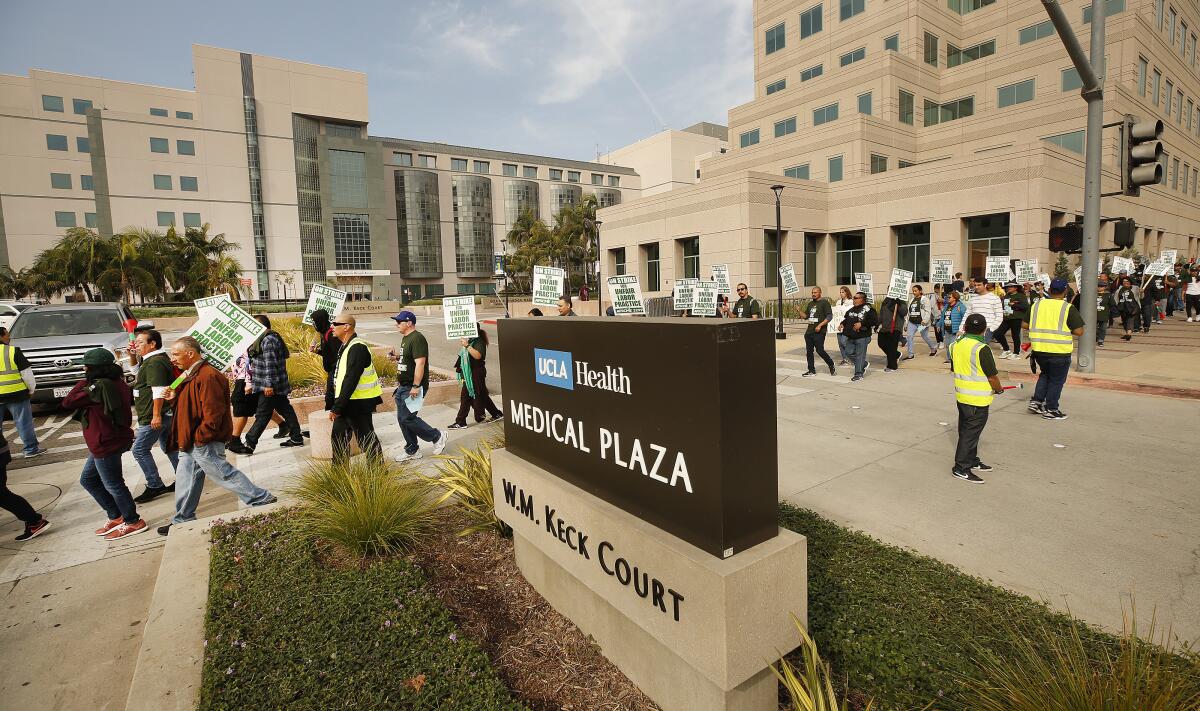
This year, lawmakers seemed to have run out of patience. A proposed constitutional amendment, ACA 14, passed the Assembly in June, 57 to 12, guaranteeing UC temp workers pay and benefits equal to that of employees performing similar work and limiting contracted labor to a few exceptional circumstances.
“Time and time again, UC has said it will do something about outsourcing,” said Assemblywoman Lorena Gonzalez (D-San Diego), the measure’s author. “We never found UC to be trustworthy on this issue. On any contract, UC can break its own policies, and it does.”
Gonzalez, a former San Diego labor leader, said the university has raised executive salaries “by exorbitant amounts. It’s the same kind of greed we see in business. But it is a constant race to the bottom for low-wage workers. Why are they creating jobs where people have to be on public assistance like food stamps or housing vouchers?”
UC has defended its administrative pay in the past, saying the university competes for talent with other world-class institutions. And although enforcement may be questioned, the university’s policy since 2017 has been to require contractors to be paid $15 an hour, higher than the statewide minimum.
In September, Gonzalez’s bill earned a majority of Senate votes — 23 to 12 — but failed to get the necessary two-thirds for a constitutional amendment.
She plans to pursue its passage next year, believing voters would approve it. “It will be so much more protective to codify,” she said. “UC must finally be required to do right by all their workers.”

